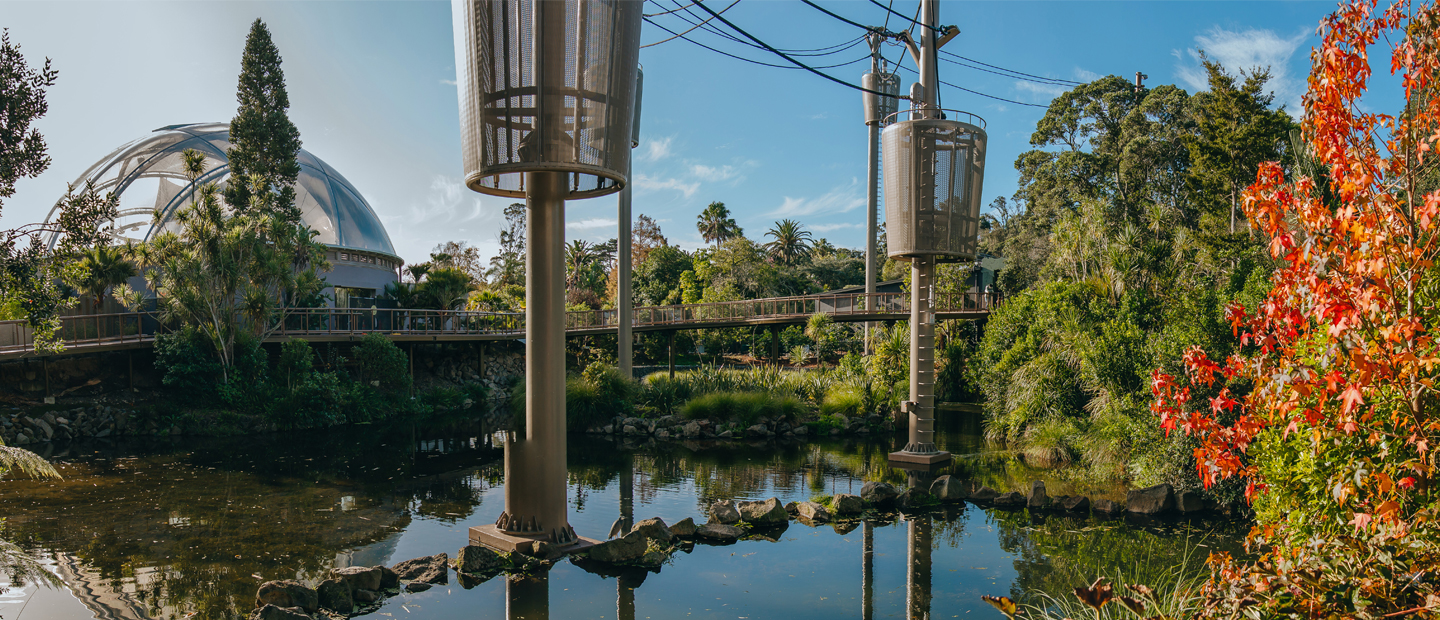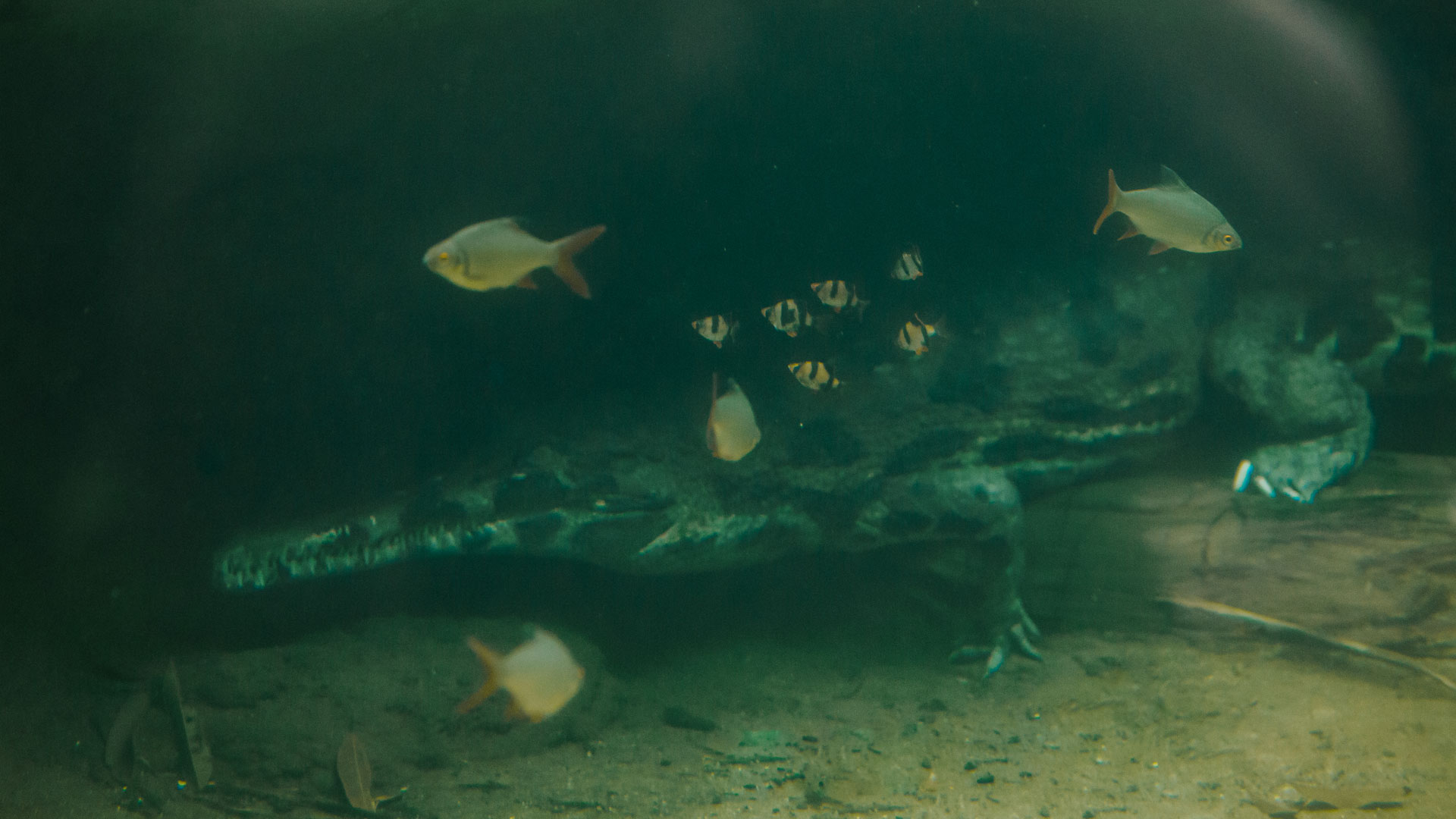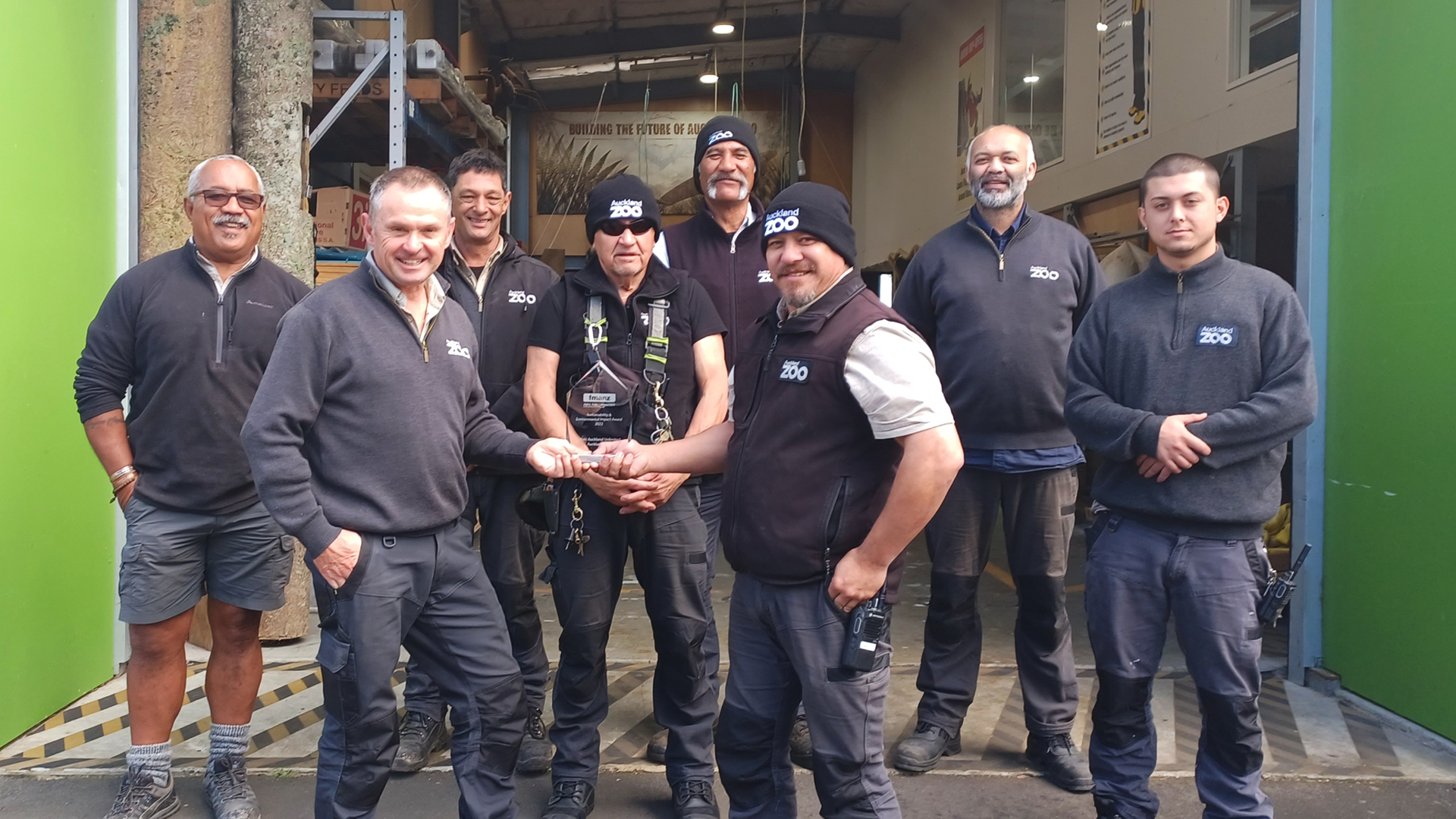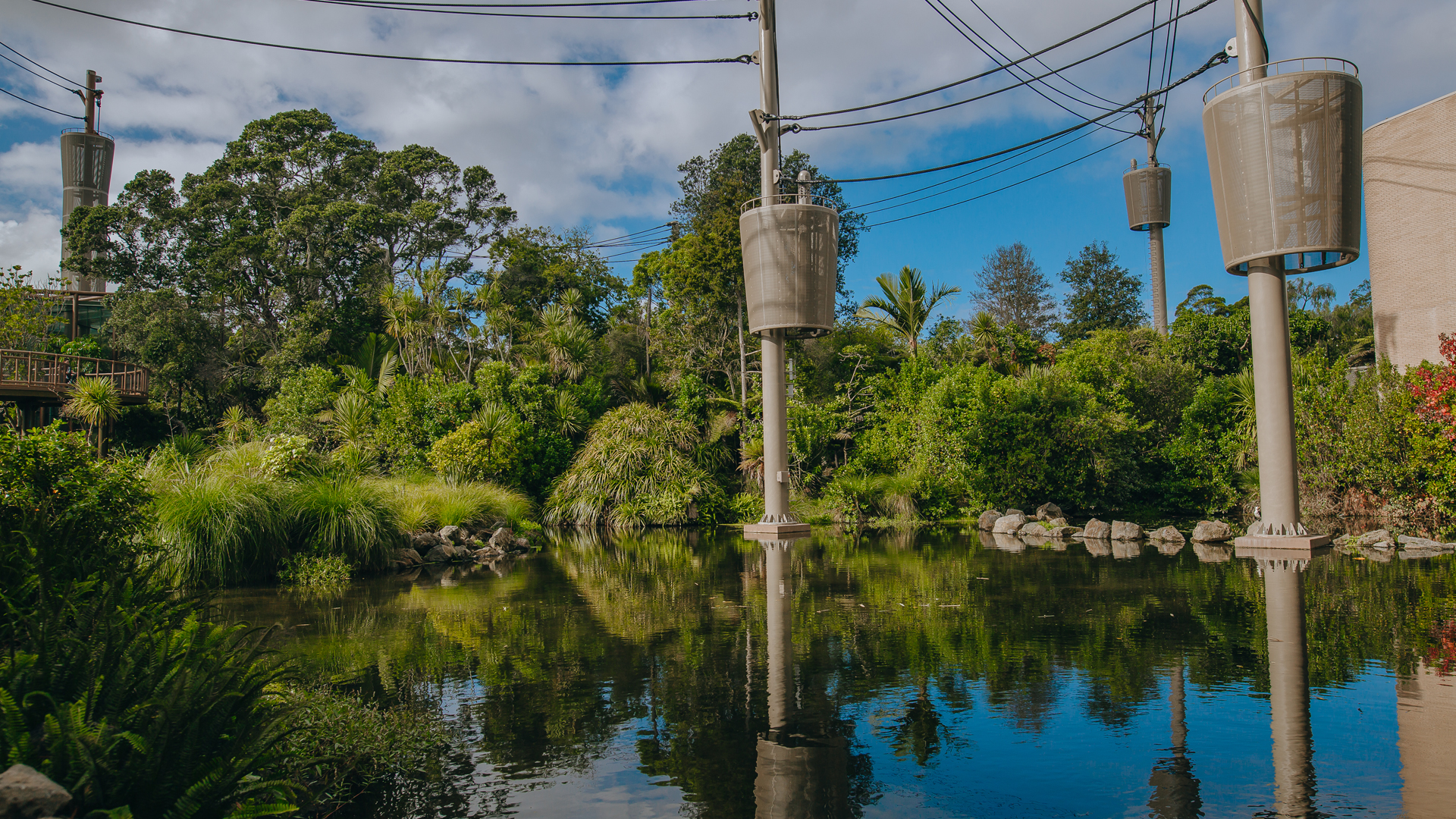Auckland Zoo is delighted to have won the FMANZ (Facilities Management Association of New Zealand) 2022 inaugural Sustainability and Environmental Impact award for its conservation and sustainable use of freshwater.
The new national award, ‘Te Tohu Whakaaweawe Whakauke me te Taiao’ recognised the Zoo’s innovative practices in water management and commitment to ‘Whakawhanake i te tōpūtanga kia ora – evolving our organisation sustainably.
“Freshwater is essential to all life on Earth, making it one of our most precious natural resources” says Monica Lake, the head of Zoo environment, design, and construction.





